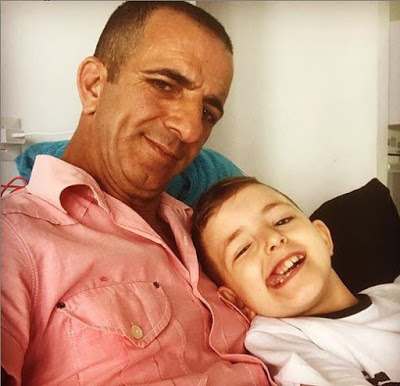Distress, humiliation, uncertainty: Israelis, do you now see what drives Palestinian resistance?
 |
| Gideon Levy 09/07/2020 |
Slowly but surely the option of violent opposition is surfacing. The combination of economic distress, fear, humiliation, uncertainty and a lack of leadership are bringing voices to the fore in broadcast studios and on social media that have probably never been heard in Israel before with such intensity.
For the first time in years, there is rage. For the first time in Israel, the threat of violent opposition exists. Soundman Eyal Altraz has already threatened a world war and to “burn the country down” if “the money doesn’t go into the bank account.” And Zvika Buzaglo, who runs a children’s theater, threatened: “I am capable of killing or doing anything. I will do anything I have to so that my son doesn’t say ‘I’m hungry.’
These are the voices of a few, but they are getting louder and spreading quickly, and they’re explosive. Nearly everyone understands these enraged people. Economic distress in the face of leadership that is estranged from the public, that is losing direction and that is wasteful and arrogant is bound to spark rage.
Soon enough, there will also be those who understand those threatening violent opposition and who will justify it.
If there’s hunger, there will be violence. If the despair spreads, such unpleasant opposition will follow. Israelis who are obedient, complacent and apathetic to others’ suffering might undergo a transformation.
Granted that a popular uprising is still a distant prospect, but the first signs are already visible. And if it erupts, it will be violent. There is no other kind of rebellion.
Despair, hunger, joblessness, humiliation, the deprivation of rights and tyrannical and arrogant governance spawn resistance, which becomes violent. Israelis are liable to learn this up close and from personal experience. It’s a shame that they never had the fairness and honesty and sense of justice to understand it even when it relates to others.
Everything that is currently sparking public rage in Israel with violent potential – temporary unemployment, financial insecurity, violation of rights, disgust with leaders and a lack of hope – is considered superfluous among that other nation living under the rule of the Israeli government and the Israeli army.
Israelis’ distress, as deep and painful as it is, is akin to the problems of the wealthy compared to the reality of life for Palestinians. The distress in Israel is also much more short-lived, but it has still managed to sow the seeds of violent opposition.
Perhaps something good can come out of the current coronavirus pandemic. Maybe it is actually COVID-19 that can also actually bring about an understanding of what is driving the rage of the Palestinian people and its desperate, justified need to resort to violent opposition. That’s how it is when it hurts. When Jews hurt and when Palestinians hurt. There’s no difference.
Anyone who understands what a children’s theater director is feeling who threatens to kill if his son goes hungry has to also understand a Palestinian who has no means to support his children because the occupation is depriving him of making a living, and who threatens the regime that is responsible for it with terrorism.
Anyone who cannot remain unmoved by a desperate soundman’s emotional monologue threatening to burn down the country if the money doesn’t go into his bank account, can’t help but understand what a desperate young Palestinian who has no money coming into his bank account is feeling. This is a third or fourth generation in despair that is turning to terrorism as a last resort. It neither has nor will have another way out and never has.
The soundman and theater director, who of course are much more fortunate, are not prepared to remain silent and surrender. They are rebelling. They are fighting. They are threatening to use what desperate people have at their disposal. They are not giving up and surrendering to those who are abusing them in their arrogance. It’s hard not to have high regard for them.
The comparison, of course, does an injustice to the truth, but even with all of the differences between the two situations of distress – the temporary Israeli situation and the nearly eternal Palestinian one – that doesn’t detract from the need to understand what is motivating the opposition.
Have Altraz and Buzaglo touched your heart? Then why not the residents of a refugee camp trapped on the other side of the border fence not far from where you live?
If you can understand the Israelis who feel driven to violence these days, you have to understand the Palestinians too.


